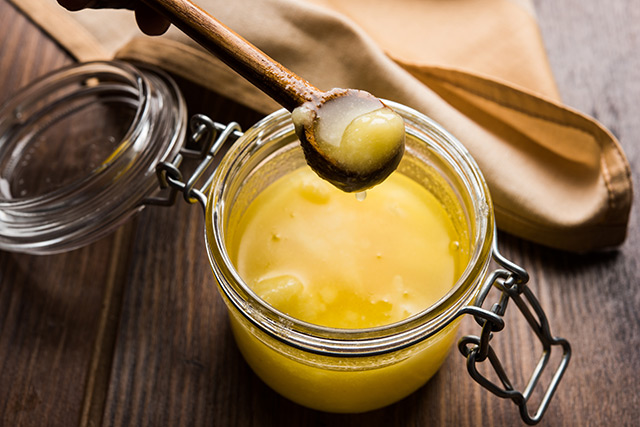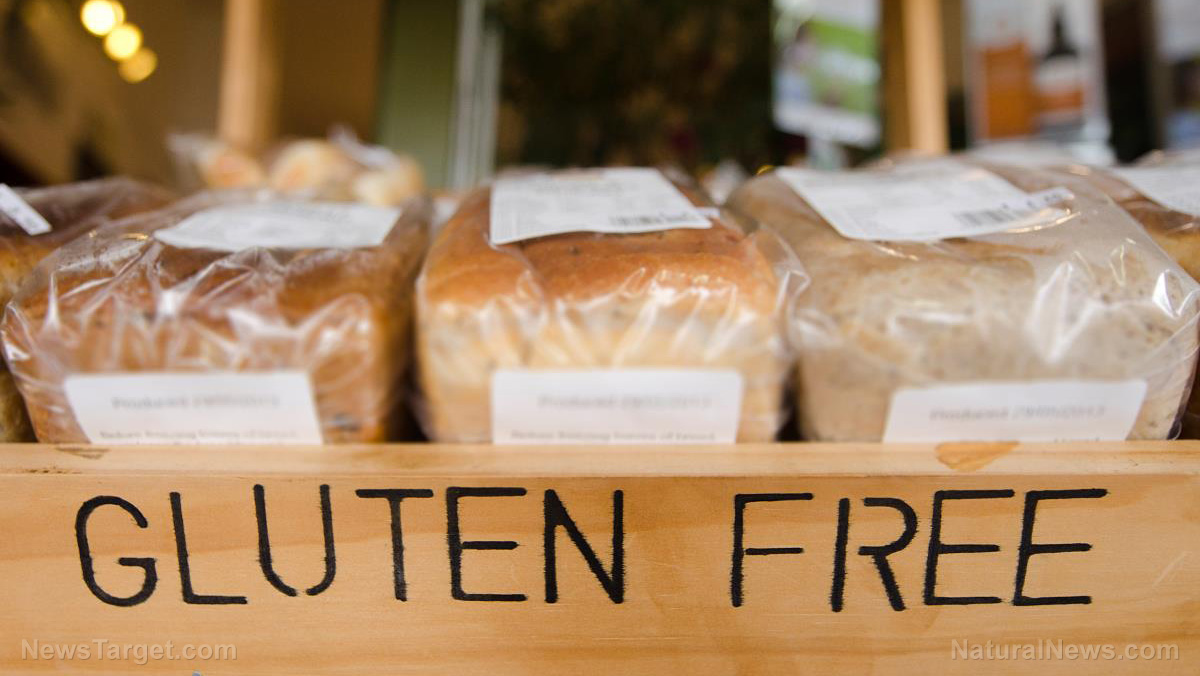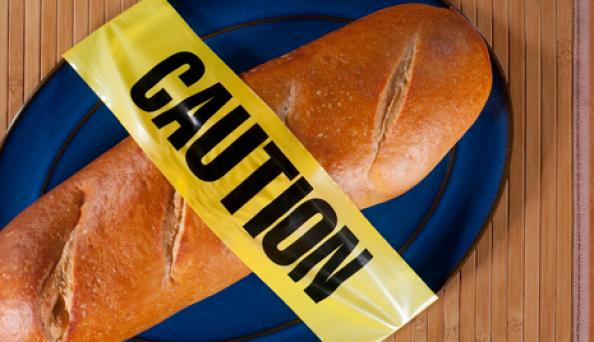Replace ultra-processed foods with these HEALTHY alternatives
05/16/2024 / By Olivia Cook

In a world where convenience often trumps nutritional value, making healthy food choices can sometimes feel like a daunting task. However, small changes in dietary habits can yield significant benefits for overall well-being. One effective strategy is to swap out ultra-processed foods (UPFs) – those laden with additives, preservatives, and refined ingredients – for healthy alternatives.
The rise of UPFs in modern diets has been linked to various health concerns, including obesity, heart disease and metabolic disorders. Fortunately, making healthier food choices doesn’t have to be complicated or restrictive. By replacing ultra-processed options with nutrient-dense alternatives, you can enhance nutritional intake and promote better health outcomes.
Replace candy with fruits
When choosing snacks, try substituting sugary options such as candy with healthier alternatives like dried fruit or dark chocolate. While indulging in occasional sweets is fine, frequent consumption of sugary foods can heighten the risk of health issues such as diabetes, heart disease and obesity.
Explore a variety of nutritious snack choices such as dried fruits, fresh fruits like bananas and strawberries dipped in antioxidant-packed dark chocolate or homemade energy balls to fulfill your sweet tooth cravings. For more snack inspiration, check out this list of 28 healthy snack ideas suitable for both you and your children.
Ditch the soda for healthy drinks
Instead of your customary soda, consider opting for coffee, infused sparkling water, kombucha or green tea. While the temporary energy surge from sodas and other sugary drinks may be appealing, the long-term consumption of soda is associated with an increased risk of Type 2 diabetes and heart disease.
On the other hand, coffee, kombucha and tea provide a caffeine boost without the added sugar. Additionally, they are rich in antioxidants, which may help reduce cholesterol levels and safeguard against heart disease and stroke.
However, it’s important not to consume excessive amounts. Too much caffeine can potentially lead to stomach discomfort or jitteriness. If you’re pregnant, it’s advisable to consult your doctor before consuming caffeine.
Additionally, be mindful of what you add to your tea or coffee, as excessive sugar and cream can negate their health benefits. Enhance the flavor with citrus slices or spices such as cinnamon or mint, but do so in moderation.
Make your own coffee creamer
Instead of relying on store-bought coffee creamers, which often contain unhealthy additives like high-fructose corn syrup (HFCS), consider crafting your own creamer.
HCFS has been associated with various adverse health outcomes, including diabetes, insulin resistance, liver issues, obesity and weight gain. (Related: Overconsumption of high fructose corn syrup-rich foods causes health problems. addiction.)
For a dairy-free and healthier alternative, you will need
- 13.5 ounces (roughly 1.7 cups) coconut milk
- 1 tablespoon honey or maple syrup
- 1 teaspoon vanilla extract
Combine all the ingredients in a glass bottle or mason jar, then shake thoroughly. Store the mixture in the refrigerator for up to one week, or freeze it in ice cube trays for longer-term use. For added flavor, you can also incorporate a sprinkle of cinnamon or a pinch of pumpkin pie spice. Remember to shake well before each use.
Replace chips with healthy and more natural savory snacks
Potato or corn chips often contains excessive salt and potentially unhealthy saturated or trans fats, increasing the risk of heart disease. Consider these alternatives instead of indulging in these. (Related: Studies show ULTRA-PROCESSED FOODS put millions of people in the U.K. at risk of cardiovascular disease.)
Nuts offer a delightful salty indulgence now and then. Cashews, walnuts and almonds provide a dose of heart-healthy unsaturated fats. Moreover, they boast satisfying protein and fiber, along with essential vitamins and minerals. Keep in mind, though, that nuts are calorie-dense, so stick to moderate one-ounce servings.
Popcorn isn’t just a favorite among movie buffs; it’s also a high-fiber whole grain that satiates hunger with fewer calories compared to chips. Additionally, popcorn contains antioxidants that may reduce the risk of diabetes, heart disease, and high blood pressure. For a healthier option, prepare popcorn using an air popper or with a heart-friendly oil, omitting the butter and using salt sparingly. Avoid the temptation of theater popcorn, which often packs a hefty load of calories, fat, and sodium.
Alternatively, consider indulging in homemade snacks such as baked potato chips, beet or kale chips and roasted chickpeas. These options are rich in fiber and magnesium, a vital mineral essential for regulating blood sugar levels and supporting nerve function.
Consider Greek yogurt instead of ice cream
Instead of indulging in ice cream, consider Greek yogurt paired with fresh fruit. Ice cream tends to be loaded with fat, sugar, and calories. Just a half-cup serving of vanilla ice cream, devoid of any additional toppings, can pack 140 calories and 14 grams of sugar.
In contrast, the same portion of nonfat Greek yogurt, boasting a creamier and thicker texture than regular yogurt, contains a mere 73 calories and significantly less sugar. Additionally, Greek yogurt provides ample amounts of calcium, magnesium, protein, and vitamin B12.
Enhance the flavor and nutritional value by adding a variety of berries, sliced bananas or other fruits. This combination not only adds natural sweetness but also contributes to a lower risk of heart disease and type 2 diabetes, thanks to the synergistic benefits of fruit and yogurt.
Say bye-bye to baked goods
While baked goods from bakeries may tempt the taste buds, they often harbor excessive amounts of sugar and refined white flour, devoid of fiber. Furthermore, they may contain butter or hydrogenated oils, laden with heart-harming saturated or trans fats.
Choose a square of dark chocolate over cookies or cake. Dark chocolate, with its higher cocoa solid content compared to milk chocolate, offers a delectable alternative. Enjoying a square or two a few times per week may lower the risk of chest pain, heart attack, or stroke.
Opt for healthy alternatives to red meat
Instead of opting for fatty cuts of beef, consider the following alternatives:
Mixed lentils and mushrooms offer a plant-based alternative reminiscent of ground beef when cooked. Mushrooms contribute a meaty flavor and texture, while lentils provide a hearty base. When combined and seasoned well, they create a meatless sloppy joe that rivals traditional burgers. This option is particularly suitable for vegans seeking alternatives to meat and fish in their diets.
Seafood provides a delightful alternative to steaks and burgers typically loaded with saturated fat, which can elevate cholesterol levels and increase the risk of heart disease. Fish varieties such as salmon or tuna boast high levels of omega-3 fatty acids, known to lower “bad fats” in the bloodstream and prevent plaque buildup in arteries. Grilled shellfish, including crab and lobster, offer another flavorful option rich in protein and essential minerals.
Skip the sugary cereal
Instead of reaching for that bowl of sugary cereal, a breakfast staple for many, consider opting for alternatives, like high-fiber, high-protein oatmeal (ideally minimally processed steel-cut oats available in shelf-stable packaging from supermarkets and online retailers), chia pudding or plain Greek yogurt parfait topped with fresh or freeze-dried berries, crushed almonds, and unsweetened coconut flakes.
Sugary cereals, often targeted towards children, are frequently laden with artificial food dyes, such as red dye 40, and high fructose corn syrup, both of which have been linked to behavioral issues in children.
Wipe out white bread, go whole-grain
Instead of your typical sandwich staple, consider opting for more nutritious whole-grain bread, tortillas or wraps. This straightforward substitution replaces your less nutritious white bread with wholesome whole grains. When selecting bread, look for the “100 percent whole grain” label to ensure maximum nutritional benefit.
Consider exploring a nutritious bread option, such as Ezekiel bread, which is crafted from whole grains and legumes, devoid of refined flour or sugar. The sprouting process involved in its creation might enhance the accessibility of specific nutrients.
Furthermore, you have a variety of delicious, grain-free alternatives to choose from, such as nutrient-rich portobello mushroom caps, sweet potato toast, and wraps made from Swiss chard or lettuce.
Refined grains, such as white flour, are deficient in essential nutrients, like fiber, B vitamins, iron and magnesium. In contrast, whole grains are rich in fiber, which aids in reducing cholesterol levels and lowering the risk of heart attack, stroke, and diabetes. Additionally, the fiber content promotes satiety – assisting in weight management efforts.
Check out StopEatingPoison.com for more stories like this.
Watch Roman Balmakov of the Epoch Times showing six popular UPFs to immediately stop eating in the clip below.
This video is from the GalacticStorm channel on Brighteon.com.
More related stories:
Ultra-processed foods cause cognitive decline and dementia, study finds.
Study: Consumption of processed foods can negatively affect brain function.
Study: Ultra-processed foods linked to increased risk of developing inflammatory bowel disease.
Sources include:
Submit a correction >>
Tagged Under:
#nutrition, Diets, fast food, fasting, fight obesity, food science, food supply, frankenfood, fruits, grocery, healthy alternatives, nutrients, organics, poison, slender, stop eating poison, tips, veggie
This article may contain statements that reflect the opinion of the author
RECENT NEWS & ARTICLES
StopEatingPoison.com is a fact-based public education website published by Stop Eating Poison Features, LLC.
All content copyright © 2018 by Stop Eating Poison Features, LLC.
Contact Us with Tips or Corrections
All trademarks, registered trademarks and servicemarks mentioned on this site are the property of their respective owners.



















